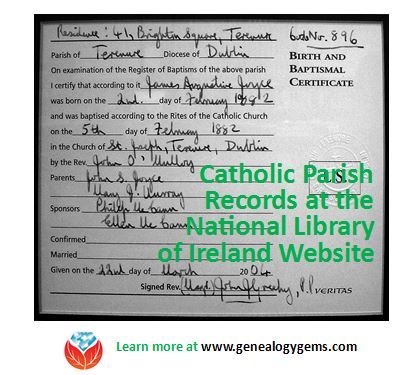The Royal Irish Constabulary Records in New and Updated Genealogical Collections
New and updated genealogical collections for the Royal Irish Constabulary are just the tip of the iceberg this week. Scroll down for more cool finds for New South Wales, Scotland, U.S. marriages, and an update to the Freedmen’s Bureau collections at FamilySearch.
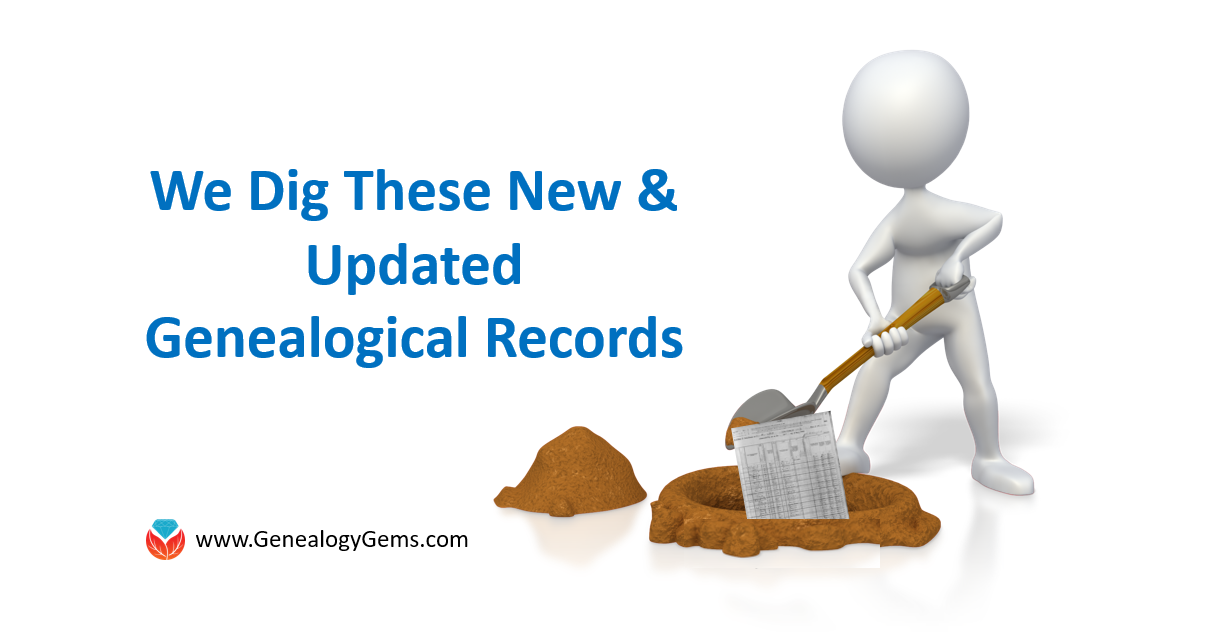
Ireland – Royal Irish Constabulary Records
You can now search the Ireland, Royal Irish Constabulary Service Records 1816-1922 at Findmypast for over 486,000 records that uncover the details of your ancestor’s career with the R.I.C.
Each search result includes an image of the original document and a transcript. The nature of the information recorded will vary significantly depending on the subject and type of the original document. The following is a list of what types of records can be found in this collection:
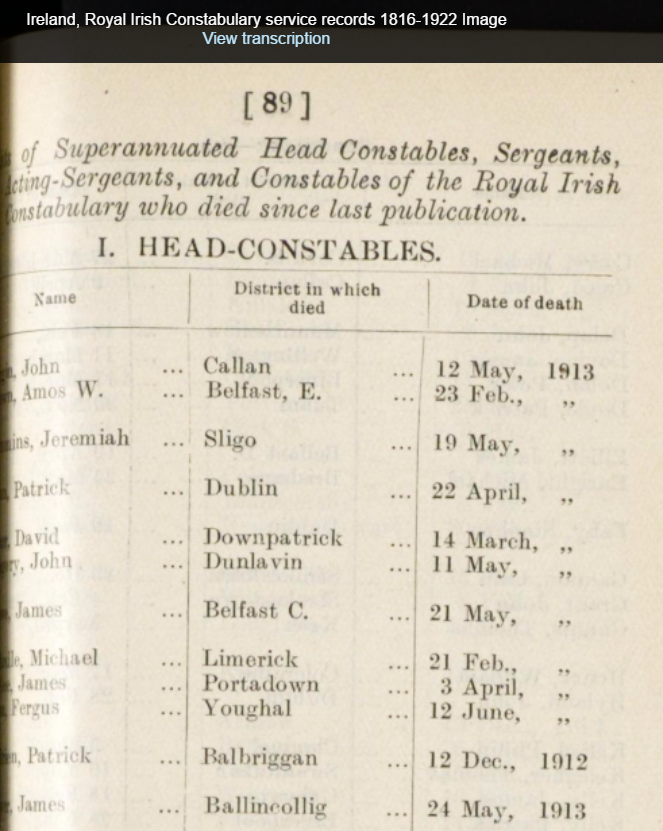
Auxiliary division general registers: These are nominal rolls that recorded member’s service number, rank, dispersed date, and company name. The registers also include division journals that recorded dates of appointment, promotions, and medical details.
Clerical staff: record of service and salaries: These lists of clerical staff include birth date, age at appointment, rank, department and salary.
Constabulary Force Funds: These correspondence registers are of members who paid into the fund with notes on whether they had been pensioned, died or received any rewards from the fund.
Constabulary lists: These are lists of chief constables created during the first year of the Royal Irish Constabulary.
Disbandment registers: These registers are of serving members who were with the force in 1922 when it disbanded after the creation of the Free Irish State. They also noted the number of years the constable served and their recommended pension.
General registers: Records of constables’ service history are contained in these general registers. The entries include the individual’s birth date, native county, religion, previous occupation, date of appointment, and promotions, as well as any rewards or punishments received and the date of pension or discharge.
Nominal returns, arranged by counties: Nominal returns are lists of all serving members of the Royal Irish Constabulary organised by county that recorded the individual’s number, rank, name, religion, date of appointment, marital status, and station location.
Officers’ registers: These registers are lists of Officers that include transfers and dates, favorable and unfavorable records, dates of promotions and details of previous military service.
Pensions and gratuities: Pension records reveal the constable’s rate of pay and the amount of pension calculated.
Recruits index: Lists of new recruits, their dates of appointment and arrival, and their company can be found in the recruits index.
Also at Findmypast, Ireland, Royal Irish Constabulary History & Directories has had a significant addition of over 43,000 records. You will be able to explore a variety of publications between the years of 1840 and 1921. These records will provide insight into the administration and daily operations of the police force.
Each record includes a PDF image of the original publication. The collection includes training manuals, codes of conduct, salary scales, circulars and staff lists that cover promotions, deployments, and rules & regulations.
Ireland – Valuation Books
At FamilySearch, the Ireland, Valuation Office Books, 1831-1856 are now available to search. These records are the original notebooks that were used when the property valuations were conducted between the years of 1831-1856. They are arranged by county, then alphabetically by parish or townland.
Land valuation records may contain the following information:
- Land occupier’s name
- Location, description, and monetary valuation of each land plot surveyed
New South Wales – Passenger Lists
The New South Wales Passenger Lists is a collection at Findmypast that contains over 8.5 million records. The collection includes records of both assisted and unassisted passengers. The assisted passenger lists cover 1828 to 1896 and the unassisted passenger lists span the years 1826 to 1900. Assisted passengers refers to those who received monetary assistance from another party or agency/government for their passage.
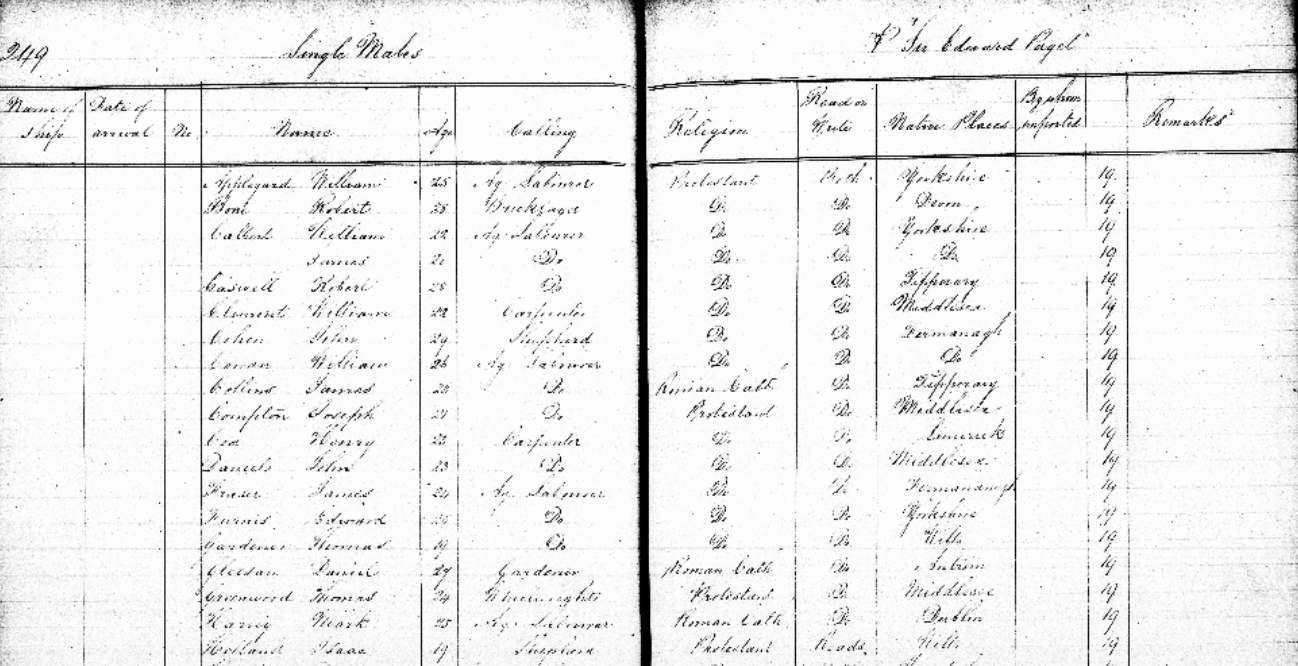
Each result will provide a transcript and image of the original record. The information included on the transcript will vary depending on whether your ancestor was an assisted or unassisted passenger, although most will include your ancestors name, passage type, birth year, nationality, departure port, arrival port and the dates of their travels.
Scotland – Parish Records
The Scotland Non-Old Parish Registers Vital Records 1647-1875 found at Findmypast is a collection of registers created by churches outside of the established church. It contains over 12,000 transcripts of births, marriages, and deaths.
Non-old parish registers are different from the Church of Scotland’s old parish records.
Though these are only transcripts and do not include a digital image of the original, you may find the following information on the records included in this collection:
With each result you will be provided with a transcript of the details found in the original source material. The detail in each transcript can vary depending on the event type and the amount of information that was recorded at the time of the event. Here are some of the facts you may find in the records:
- Name
- Birth year, date, and place
- Event year
- Event type – birth, marriage, or death
- Register name
- Parish and county
United States – Freedmen’s Bureau Records
FamilySearch has updated their magnificent collection of United States Freedmen’s Bureau, Records of Freedmen, 1865-1872. Records found in this collection include census returns, registers, and lists of freedmen. They also include letters and endorsements, account books, applications for rations, and much more. Many of the records will hold valuable genealogical data.
For a complete list and coverage table of the full collection, click here.
United States – Marriages – Oregon and Utah
Ancestry.com has recently updated two marriage collections. The Oregon, County Marriages, 1851-1975 and the Weber and Piute Counties, Utah, County Marriages, 1887-1940 have some new records. Marriage records will often provide many helpful genealogical details. Depending on the year, you may find:
- Name of the groom and bride
- Date and place of the event
- Birth dates and places of bride and groom
- Names of parents of both bride and groom
- How many previous marriages and marital status
- Place of residence of bride and groom
United States – Washington – Newspapers
Washington State historic newspapers added to their digital collection of newspapers this week. With nearly 50,000 digitized pages from historical newspapers based in Centralia, Eatonville, Tacoma, and Spokane newest titles include the Centralia Daily Hub (1914-16), The Eatonville Dispatch (1916-61) and Den Danske Kronike (1916-17), a Danish-English publication based in Spokane.
The Centralia and Eatonville papers were added this month and Den Danske Kronike was added last summer, along with the Tacoma Evening Telegraph (1886-87).
You will be able to search this newspaper collection for free from the Washington State Library website.


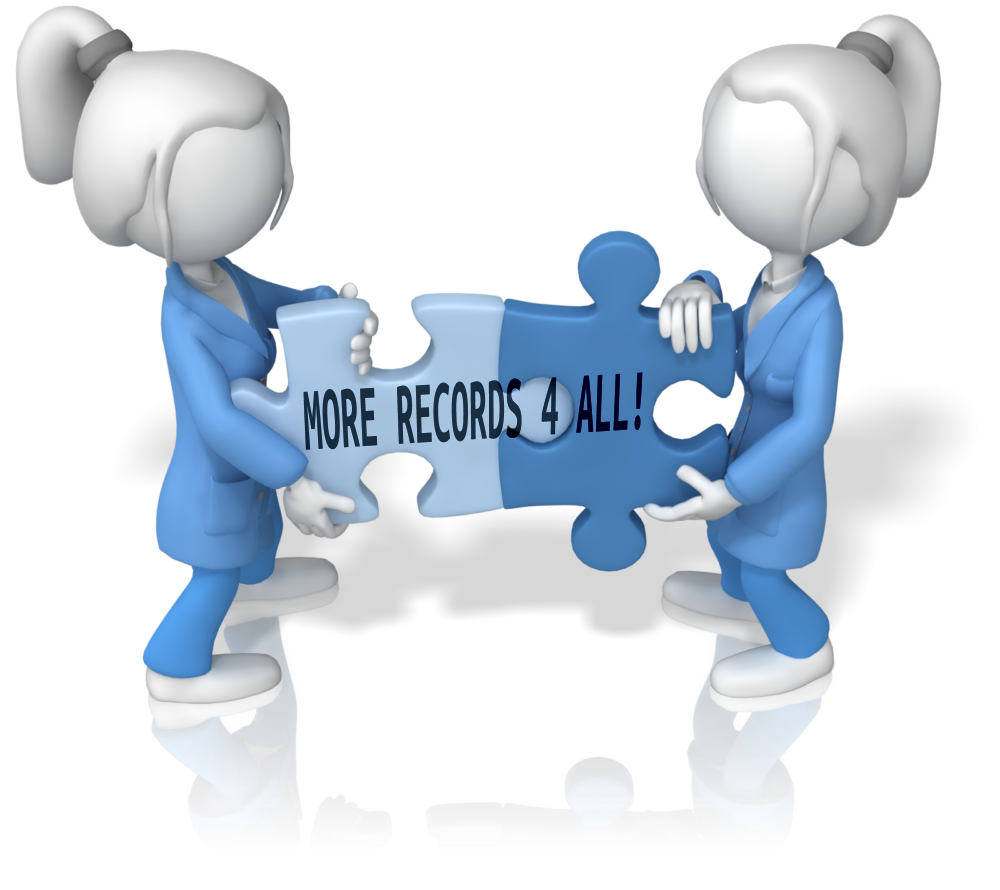 everywhere. It looks like FamilySearch’s billions of historical records will get a searchability boost with MyHeritage search technologies and users of both sites will have access to the results.
everywhere. It looks like FamilySearch’s billions of historical records will get a searchability boost with MyHeritage search technologies and users of both sites will have access to the results.
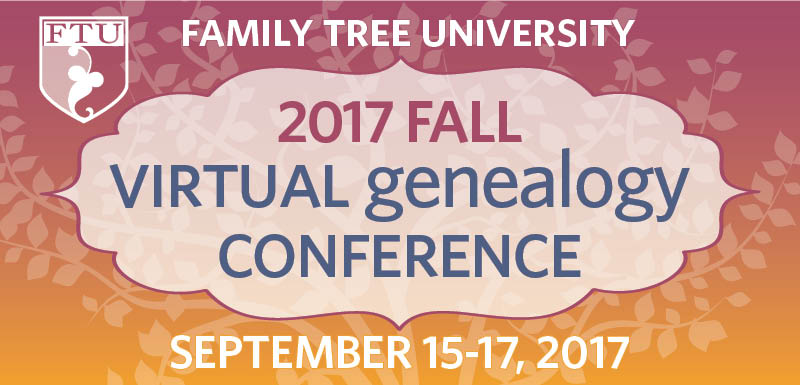
 I’m tying all these virtual classes together with a live keynote presentation, “Big Pictures in Little Details,” on
I’m tying all these virtual classes together with a live keynote presentation, “Big Pictures in Little Details,” on 